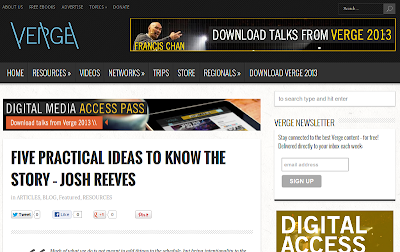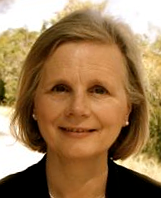Yesterday morning Mo and I went for a walk. I headed across to his place, we had a coffee and chatted.
Then, as it was a beautiful morning, we walked down to the river, crossed over, headed upstream to the Rivermill pub, then back to Mo's for a second coffee and a bit more conversation.
On the way we had a great view of Castle Hills and it struck me that this place has much to say about the church. I've seen this view of the old castle site in Eaton Socon many, many times, but never before have I sensed that it was a powerful illustration of some spiritual principles.
The history of the castle - First I need to give you a bit of background information. The land around the river is very flat. It's flood meadow, there's a deep layer of river gravel covered by rich soil, and the river itself would have moved slowly back and forth across this flat area over the ten thousand years since the last ice-age ended. The higher ground you see in the photo is man made.
There is a story, perhaps true, that the castle mound was constructed and a wooden castle built on it
during the Norman period. But the nobleman who built it didn't ask for the king's permission, and he was later commanded to pull it down again.
Certainly there is no castle there now.
How does this apply to the church? - Just consider that the church is a holy temple built of living stones. We, the people of Christ the King, are those living stones.
In 1 Corinthians 3:8-17 Paul writes that the foundation of the church is Jesus Christ, but whether the building survives or falls also depends on whether it's built of the right materials and how skillful the builders are.
The castle was built on its mound by a Norman nobleman. But it was built of wood, not stone, and it was built unwisely because it was built without the king's permission.
How about the local church where you live? Has it been built with or without the permission of King Jesus? Was it built at his command? And is it made of materials that will last? We need to ask ourselves what other foundations and materials might sometimes be erroneously used.
It might seem strange to suggest that we need permission from Jesus to begin church. But remember, he said, 'I will build my church'. In everything we need to listen to the Holy Spirit and do what he calls us to do. If I branch out on my own I may come unstuck.
As a general rule it's OK to just meet together because we are his people, that is always a good thing. But what is not necessarily right is to create structures to manage and control the direction, the finances, the policies, and the work of the local body. For those we most certainly do need to hear and obey the King. That's what I mean by 'build' in the context of church life.
Clearly, if a local expression of church is built without the King's permission it is not built on the foundation of Christ. It might instead be built on greed, for example, created to turn in a tidy sum in offerings with the intention of creaming some off into someone's pockets. We have seen this with some TV ministries over the years. Or it might be built on business management principles leaving no room for the Holy Spirit to guide the work. Or perhaps it might be built on faulty doctrine or wrong practice.
And what about the materials used, the living stones? Even if constructed on the true foundation of Christ, a church might still be at risk if the people lack wisdom, or the ability to hear the Spirit well, if there is wrong teaching or unforgiveness or a clinging to materialism.
But perhaps the most dangerous situation of all is one where the church is led in a way that doesn't encourage active participation, where people expect to be 'fed' instead of coming to feed one another.
The way forward - There are many potential pitfalls, but beginning in simple ways and making it difficult for people to be mere pew sitters will always help. Transforming a situation steeped in traditional ways is much more difficult, but by no means impossible.
Material designed to help church grow in healthy, Christ-centred, missional and loving ways is produced abundantly by people and organisations like Neil Cole (Church Multiplication Associates), Alan Hirsch (Forge Mission Training Network), Tony and Felicity Dale (House2House), Steve Addison (Movements that Change the World) and, here in the UK, Peter Farmer (NewForms Resources).
There are also many, many other sources of inspiration, information, ideas, and good teaching - far too many to list here. Consider Paul Young, Lyfe, Austin-Sparks.net, Nomad Podcast, Olive Tree, Be the Light.
Questions:
- What is good about your local church environment?
- What is less good?
- Are there ways you could help to improve things?
- Are you reaching others, encouraging the church family, loving those around you?
See also:
- Austin-Sparks.net
- Be the light
- Church Multiplication Associates
- Cole-Slaw
- Eaton Socon castle - Wikipedia
- Forge Mission Training Network
- Forgotten ways, the
- House2House
- Lyfe
- Movements that change the world
- NewForms Resources
- Nomad Podcast
- Normans - Wikipedia
- Olive Tree
- Paul Young
- Peter Farmer
- Simply church
- Steve Addison - Movements that change the world
- Tony Dale
















